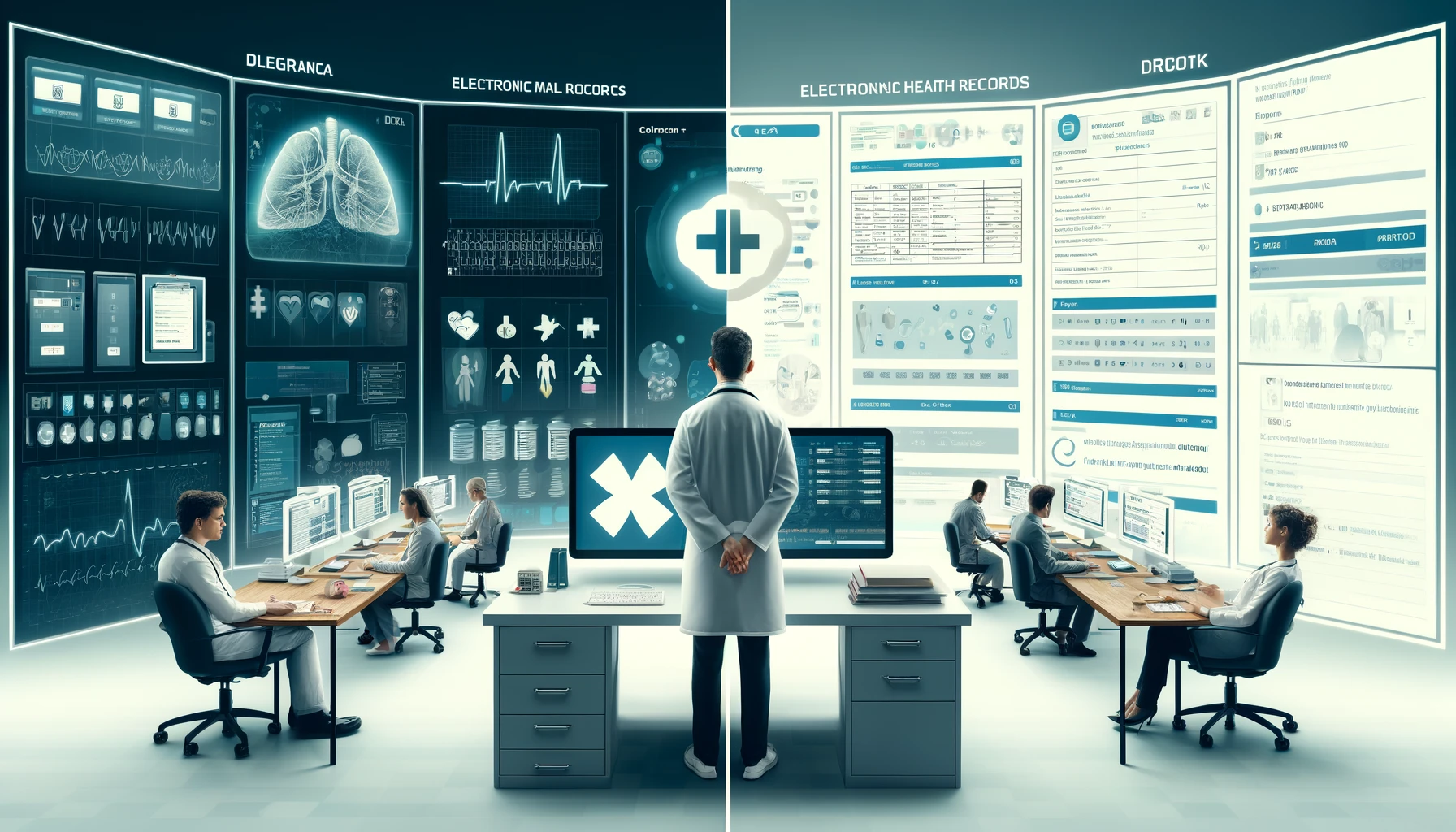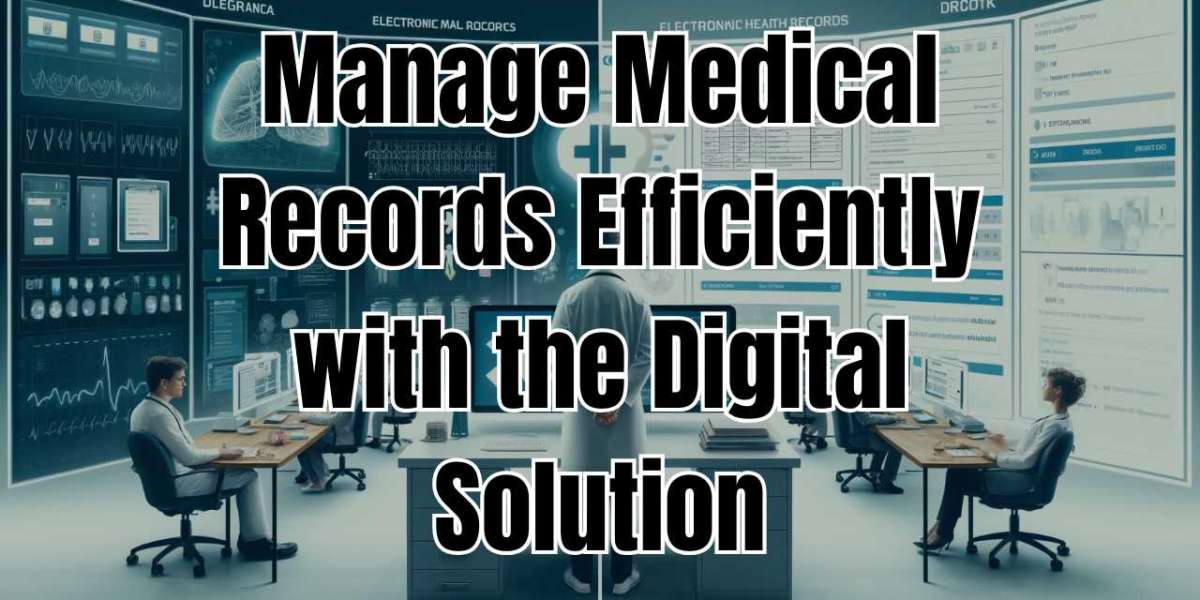Key Takeaways
- Efficient medical record management improves patient care and regulatory compliance.
- EHR systems offer increased accuracy and faster access to patient information.
- Cloud storage ensures scalable, secure, and easily accessible medical records.
- AI and telehealth will drive future advancements in digital medical record systems.
Efficient medical record management is important in providing quality patient care and health standards compliance. In the last couple of years, there has been a huge drift away from the healthcare sector using paper-based systems to digital solutions that increase accessibility and accuracy. Such changes would enable healthcare providers to streamline their record management processes, thereby significantly cutting the possibility of errors within such operations and achieving operational efficiencies.
Proper management of digital tools, such as EHRs and sophisticated software that generates PDFs, will enable the healthcare provider to manage patient information effectively; thus, this will lead to improved coordination of patient care and better provider communication.
Digital Solutions for Managing Medical Records

Below are some of the solutions:
EHR Systems
Definition and Key Characteristics of EHR Systems: EHR systems are the electronic versions of the time-tested paper charts. These contain all the medical and clinical information about the patient. Key features of these EHR systems include comprehensive patient histories, medication lists, lab results, and diagnostic images. They also implement clinical decision support tools that will have a warning system against the problems that may occur from interacting drugs, allergies, and other actions.
Benefits Of Using Traditional Methods: There are various benefits to changing over to an EHR system compared to traditional paper-based methods. One of the significant advantages is increased accuracy; EHRs eliminate the issues of misinterpretation or illegibility many face with written notes. Another good thing with EHR systems is that patient records are readily available across facilities; this helps healthcare providers make informed clinical decisions quickly.
EHRs allow for the sharing of patient information across facilities, avoid redundancy, and ensure that all caregivers access the most current patient information. In addition, billing and coding will be integrated into the EHR systems, which will therefore reduce administrative work by giving less time and effort in conducting such practices.
Cloud Storage Solutions
Benefits of Storing Electronic Records on the Cloud: Cloud storage solutions hold quite attractive benefits for managing medical records. These systems allow the data to be accessed and retrieved over the internet and obviate the need for any kind of physical storage space. It further minimizes the chances of loss of data in case of some disaster, such as fire or flooding. Cloud storage comes with a scalable feature, where healthcare organizations can scale the additional data storage needs without making heavy investments in infrastructure.
Accessibility and Security Features: Ease of access is a hallmark of cloud-based record storage. Any authorized healthcare professional can have access to patient records across the internet, which helps enable timely care in an emergency situation. In urgent care or telehealth settings, it pays to have access to a patient's medical history at a moment's notice, as this can have very important consequences for the case being treated.
One of the most critical concerns in healthcare is security, and cloud-based storage solutions assure good features that prevent access to sensitive data. As encryption protocols render the data safe during its transfer or storage, whereas possibilities for unauthorized access are reduced with multi-factor authentication, regular auditing for healthcare regulations compliance makes it more secure for use, therefore utilizing the same is quite justified.
Role of Timely Access to Medical History in Clinical Decisions
Access to a patient's medical history at the right time is considered fundamentally essential in an effective process of clinical decision-making. With quicker access to a list of allergies, previous treatments, and lab results, healthcare providers are better placed to make accurate diagnoses and, therefore, plan adequate treatment interventions. This makes the care safer as well as leading generally to the quality of care. Informed decisions to change the healthcare landscape by incorporating thorough, up-to-date medical records will lead to efficient and quality care of patients.
Integration of PDF Tools for Efficient Record Management
Below are some ways to manage your documents with PDF management tools. Scroll down:
Editing and Annotating Documents
Maintaining an accurate medical record is important to appropriate patient care and legal observance. With the capability of editing documents, healthcare providers can almost instantaneously rectify errors, update patient records, and reflect any changes in the treatment plan. New information can be incorporated without the need to start anew, as the history of a patient's encounters and treatments remains unaltered.
File Merging and File Organization
The merging process is essential as it can gather different patient records from several sources and help amalgamate them into a single document. This is especially useful when a patient has been treated by several different providers or facilities. Mergingdifferent records in this light, professional healthcare professionals can have an integrative view of medical history, treatment plans, and care that is ongoing for the patient involved. Consolidation of information ensured results in better decision-making and improvement in the continuity of care.
Future Trends in Medical Record Management

With these future trends, healthcare organizations are presented with an opportunity to not only improve their record management but also, consciously provide inputs to building a better experience for the patient within a globally increasing digitalistic environment.
Artificial Intelligence and Machine Learning
One of the greatest changes in the future is going to be that of the advent of AI and ML one of the most significant changes for the future management of medical records. Various tasks need to be managed in healthcare creation and offering, and most of them can be made more efficient and even automated with the use of these technologies. Pattern recognition can quickly be done by AI in large datasets, such as big insights that health professionals may not directly identify, found through them. It can even help in better diagnosis and treatment plans by analyzing the historical patient record and predicting health risks.
Telehealth Services Integration
Telehealth services have caused a complete overhaul in healthcare provision, and thus there is a great need for proper digital record management systems to be instituted. Computerized medical records are very vital in facilitating telehealth consultations and monitoring patients. Where, in most instances, communication through digital media is done by the patients and healthcare providers, having indispensable and updated medical records about all patients is regarded as essential in the provision of care.
Ending Thoughts
The right management of a patient's medical record is an important feature of quality patient care. The real change from the old paper-based systems to digital means, like EHRs and cloud storage has improved the safety, accuracy, and accessibility of patient information. PDF tools will further facilitate easy editing, merging, and streamlining of the documents that are necessary for maintaining good records of a patient.
As this health sector continues to grow, with further developments in Artificial Intelligence, telehealth services, and more, the need for managing digital records will be irreparably increased. By embracing these technologies and practices, healthcare providers can take steps toward improving patient outcomes and fostering more coordinated and responsive healthcare.



